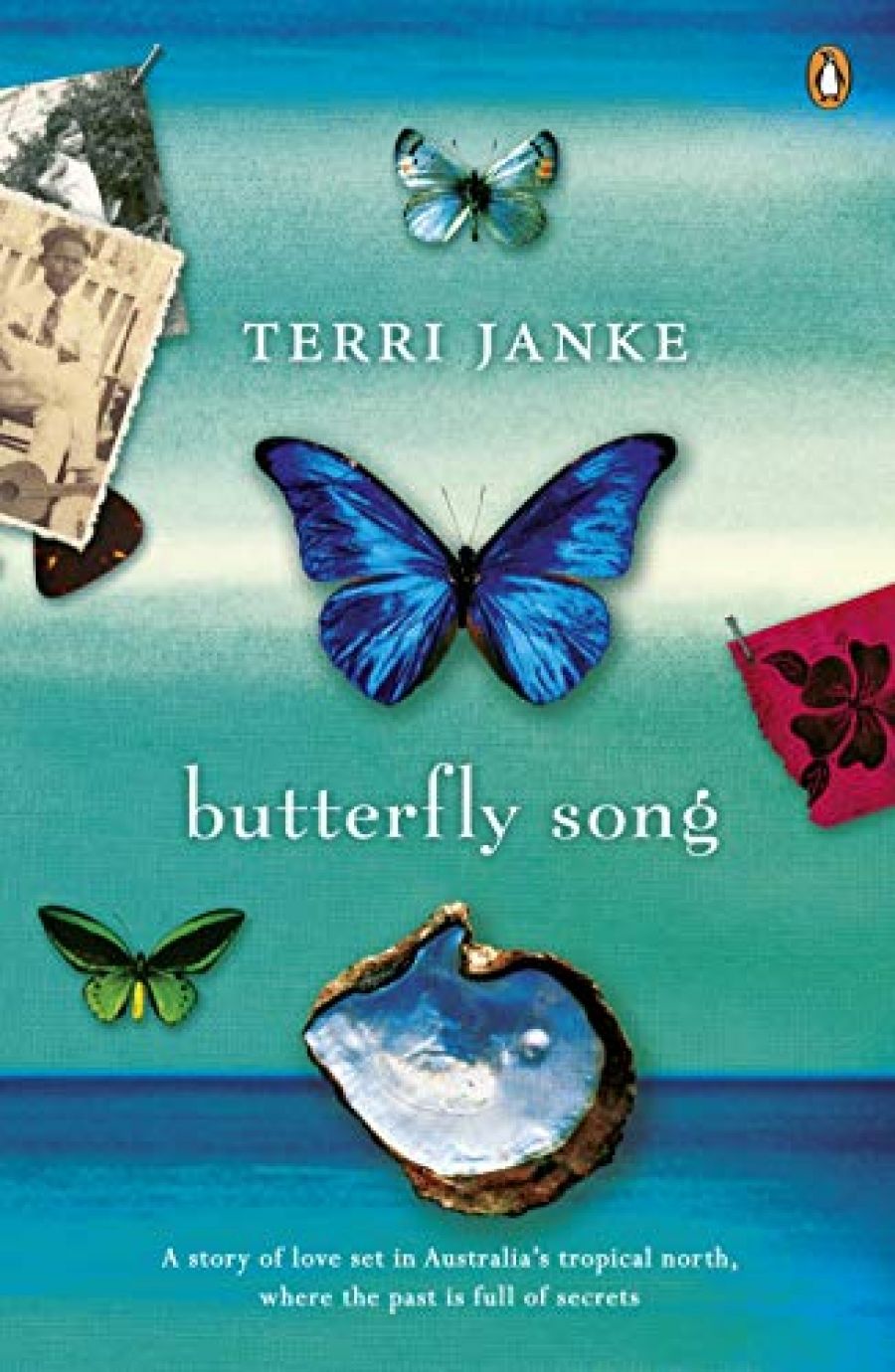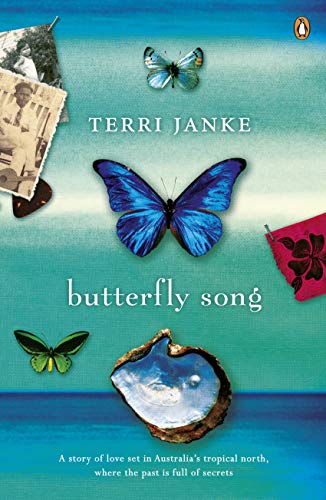
- Free Article: No
- Contents Category: Fiction
- Review Article: Yes
- Article Title: The Gathering Spirit
- Online Only: No
- Custom Highlight Text:
From the first paragraph, Terri Janke’s Butterfly Song makes its intentions clear: this is a novel about the love of the land and the palpable connection to the ancestral home. ‘They say if you live on an island for too long, you merge with it. Your bones become the sands, your blood the ocean. Your flesh is the fertile ground. Your heart becomes the stories, dances, songs. The island is part of your makeup …’ This is why Tarena Shaw feels an odd sense of belonging when she first steps foot on Thursday Island, her grandparents’ birthplace. Though she has never been there before, the memories and myths that have been passed down the family tree have guaranteed a spiritual bond between the black-suited city slicker and the tropical island with water like a ‘living gemstone’.
- Book 1 Title: Butterfly Song
- Book 1 Biblio: Penguin, $22.95pb, 252pp, 014 300 2627
- Book 1 Cover Small (400 x 600):

- Book 1 Cover (800 x 1200):

Tarena, a mix of Aboriginal, Torres Strait Islander and Malay, was born in Cairns, and grew up in Canberra before settling in Sydney. With the ink barely dry on her last law exam, she is whisked away to a family funeral (‘a tombstone un-veiling’) on Thursday Island where she is reunited with extended relatives and soon learns about a misplaced heirloom. In the flush of love, her grandfather Kit had presented her grandmother Francesca with a butterfly carving fashioned from a pearl shell. The white doctor attending the ailing Francesca had nefariously removed it upon her death, and for generations it had lain as a keepsake within his own family. Now, forty years later, it has resurfaced as a brooch for auction at Cairns and it’s up to the aspiring lawyer in Tarena to prove prior ownership of this pearl butterfly, to prevent its sale and to return it to her own family. Valuable as it is to collectors of antiquities, as a token of love, it is priceless.
The narrative spans fifty years and consists of short, choppy chapters that move back and forth in time and switches between Thursday Island, Cairns, Canberra and Sydney. Butterfly Song explores the life of Kit and Francesca on the island before their evacuation to Cairns during the war, as well as Tarena’s childhood in northern Australia and eventual settlement in Sydney.
Like most first novelists, Janke’s début is semi-autobiographical and draws heavily upon her experiences to provide a framework for her characters. Now a successful lawyer, specialising in indigenous cultural and intellectual property, Janke revisits her past in Butterfly Song as a law student negotiating university life like a trespasser. There is a tendency in the novel to explicate more than necessary, as though Janke doesn’t trust her readers to draw their own conclusions about the plight of Tarena as an insecure, self-conscious sole black student in her law class. There is earnestness in her words and a lack of confidence in her fictional creativity, which extends to her even explaining the technical terms of various legal terminologies as if transcribing them from her lecture notes. However, Janke’s prose, plodding and serious, begins to loosen up and take flight when she returns to the past; the power of Butterfly Song lies in its evocation of Thursday Island at a time when deep-sea pearling was a common way of life and romance was a handsome young man strumming his guitar and serenading his beloved under a frangipani tree. The butterfly song he composed, with its lyrics about beauty and freedom, would be kept alive through oral history.
There are racist and paternalistic individuals and institutions to contend with throughout the novel, as well as a number of domestic tribulations, but, at its heart, Butterfly Song is a misty-eyed, affectionate story about incontrovertible family bonds and the deep affinity with the land of one’s ancestors.
Tarena’s mini-battle to reclaim her family memento is framed against the historic Mabo ruling in 1992, which argued the principles of native title and prior occupation, and effectively quashed any claims about terra nullius. Janke does not attempt any in-depth political discourse about this momentous decision, but, with such a victory spurring her protagonist on, there is never any doubt that Tarena will succeed in her quest to return the butterfly jewellery to its rightful place. Naturally, justice would prevail over this particular dispossession matter, as the novice lawyer makes good, paving the way for a neat, predictable ending. Despite an initial apprehension at the labyrinthine processes of the legal profession, Tarena is left feeling optimistic about the law as an empowering and affirmative tool, able to be harnessed by a ‘blackfella’, with the re-appropriated pearl shell a symbol of the need for indigenous culture to be respected. Butterfly Song ends as it begins, with a paean to the ‘gathering spirit’ of ancestors whose collected wisdoms will in turn reverberate in the next generation.


Comments powered by CComment